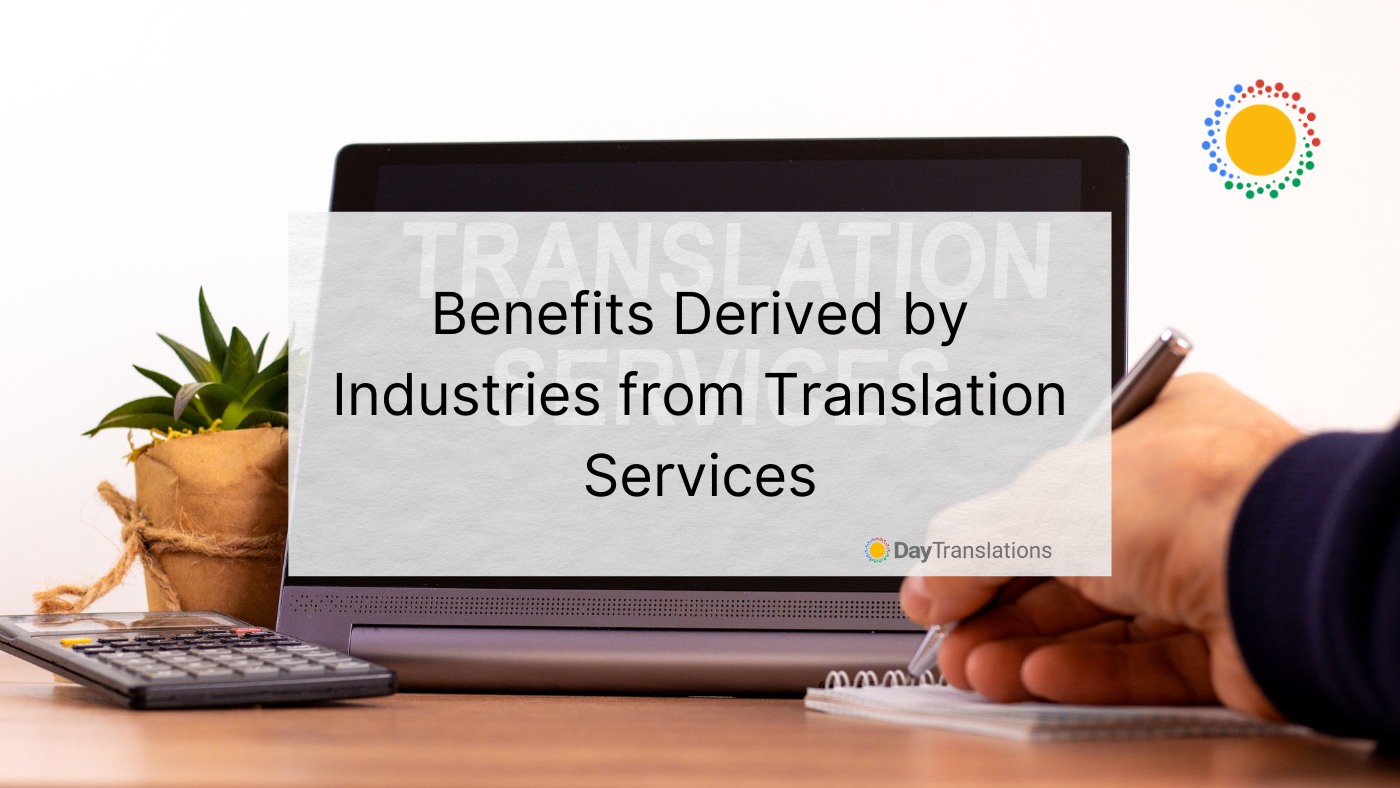It is not simple to pick the right and the best translator or interpreter to fit your need for language services. Several factors must be considered to ensure that the linguist answers your specific need.
On the part of the linguist, they say that the success of the project depends on the specific need and the details the client provides. It is also important for the client to understand that although the terms translator and interpreter are often interchangeably used, the two are quite distinct. Translators dealt with written text. Interpreters, on the other hand, handle the spoken word in live situations.
Different skill sets
The skill set for each job is different. There is more time given to translation. The translator can look up the text and even do research. The linguist has the time to choose the best translation style to use for the project.
When doing interpreting work, the interpreter must possess excellent skills in note-taking. He or she should have an excellent memory and linguistic expertise. The interpreter speaks consecutively or simultaneously.
Need to define the objectives for the translator or interpreter
Interpreting and translation work requires accuracy and precision. For the project to succeed, it is essential that the client clearly define the objective of the project. It helps the language services provider (LSP) or translation agency or company to assign the right translator or interpreter for the job. It must be clearly defined, so the work suits the requirements of the project. For example, there are translation projects that are directed at specific age groups, so the writing has to be suitable for the particular age category. Should the tone be casual or formal? At times, the dialectical difference should be considered, even if it is the same language. Spanish is spoken in different countries, for example. There are different versions of Spanish and the slight variations matter to the target audience, such as the Spanish used in Costa Rica, Chile, Argentina or Spain.
No specific criteria for translators or interpreters
In the United States, there are no specific criteria to become an interpreter or a translator although several government certifications and professional organizations are available to provide certifications for specialists in particular areas. Some interpreters train to handle court hearings and legal proceedings while there are some who specialize in other types of interpreting work, such as medical interpreting. For example, the Nevada State Supreme Court certifies court interpreters in Nevada. It is typical for medical interpreters to have specialized training in specific guidelines such as those issued by government health organizations.
In the past, immigrants who lack proficiency in the English language resort to using their friends or family members as their interpreter or translator. Unless it is an emergency, it is illegal under U.S. federal law to use relatives or friends as translators or interpreters. The most vital reason for the implementation of this law is that the informal interpreter or translator tends to filter information, whether it is or is not intentional. Often, the translation is not accurate as they either add or omit things.
Professional medical interpreters receive training in privacy rules. They are bound by the law not to repeat or reveal anything about the patient or the medical diagnosis and treatment. This does not happen when a relative or friend is used as an interpreter or translator. Since they are not professionally trained and not bound by any law, they are more than likely to share information, especially when asked by other relatives, friends or members of their community who expressed concern for a sick friend.
Picking the most suitable translator or interpreter
The need to accurately convey the message, whether it is written or spoken, is a job that requires the expertise of a translator or interpreter to ensure proper communication and understanding. It’s one of the main reasons why the client needs to accurately define their objectives and provide all the necessary details to the language services provider.
One good case to dissect is the situation in Las Vegas, Nevada. It is a place where the local government and businesses are always in need of interpreting and translation services as the city caters to international visitors all-year round. More than 25% of the tourism revenue of the city comes from foreign tourists.
The large casinos and hotels in the city are a big lure for foreign visitors, and they face several challenges due to the constantly changing demographics. Localizing the content of their websites is one thing. Many of them started with Spanish and later used more languages such a Chinese (Mandarin and Cantonese), Japanese, Italian, German, French and more recently Portuguese and Korean. Huge entertainment complexes in Las Vegas also provide mobile content, which contains more targeted information for tourists, such as shopping centers, pharmacies, popular tourist spots, properties and other services. They are aware of other things that foreign tourists like to do and provide them with information in different languages.
Here are some pointers:
- It is essential for business owners not only to understand the needs of their clients but to be very aware of their market and find the right language services provider that has a team of linguistic experts in various fields. They have to cater to people from different cultures who have different sets of needs they have to address.
- The experience of professional LSPs provides them with enough knowledge to help business owners to plan their translation or interpretation projects. In order to make this work, there should be mutual trust between the business owner and the LSP, as they will both benefit from the experiences and information each of them can share.
- When hiring a translator or interpreter, see to it that you are hiring a professional who has the proper linguistic training and cultural knowledge. You should hire a linguist who is a native speaker. It is better if the person is a long-time resident of the country. Many languages are full of double meanings and different inflections, which significantly affect the translation or interpretation.
- Mainly, you have to look for linguists who are highly specialized in their field of expertise. If you deal with technical or scientific matters, you should find a technical translator or a scientific translator. If you are in finance, make sure that your hire a linguist who is an expert in business and finance translations. Be wary of people who claim that they can do everything because it is just not possible.
- See to it that you request translators or interpreters who are native speakers and have excellent language skills.
- It is important to remember that the complexity and length of the text affect the price of the translation. The price is lower when the translation is going to be in a common language such as Spanish, French or German compared to translations in rare languages such as Swahili, Khmer or Bengali. It is normal for translators to charge extra for rush work or converting documents into other formats.
- When hiring an interpreter or translator, see to it that you ask for resumes, samples or proof of previous works and references. You should ask about their experiences in the specific subject area and inquire if you can call their past clients.
- It is easier to check previous works and references of translators. The situation is different when you are hiring a professional interpreter. However, here are some criteria you should check.
- Interpreting needs a different skill set. The interpreter must be an expert in delivering the message of the speaker accurately while keeping the natural flow of speech. The precision of the delivery is necessary but that the same time the interpreter must deliver the message clearly and in the same manner and tone as the speaker.
- The most common types of interpreting work are consecutive and simultaneous interpreting. A simultaneous interpreter requires the ability to carefully listen to the speaker while interpreting so he/she can keep up with the speaker’s pace. The simultaneous interpreter must expect the next part or the continuation of the speech because the interpretation is almost real time.
- In consecutive interpreting, the interpreter should have an excellent ability to remember a lot of information, take notes and double check the details and relay the correct information when the speaker pauses. The consecutive interpreter should be very familiar with the subject matter to maintain the flow of ideas of the speaker accurately.
- For interpreters, they should have a strong background in the particular subject matter. They should also have in-depth knowledge of the specific terminology. It is vital for them to prepare in advance because the job calls for accuracy.
- They should be very proficient in the specific language pair and master of cultural references and linguistic nuances.
Collaborate with a professional LSP
Ensure that you are hiring the right and the best interpreter or translator by collaborating with a reputable and professional language services provider instead of looking for an independent linguist. The LSP has the proper credentials, a number of qualified interpreters and translators with the right experience, linguistic proficiency and subject matter expertise. Moreover, an LSP can quickly select the most qualified professional to assist you even at short notice.
When in need of a professional translator or interpreter, give Day Translations, Inc. a call at 1-800-969-6853. You can also send an email at Contact us at your convenience. We are open 24/7, every day of the year, to serve your translation or interpreting needs whenever you need it. Our expert linguists are all native speakers and located in-country. They are subject matter experts with the right training and certifications. Whatever type of translation and interpreting needs you have, our expert linguists will be able to help. For high quality and accurate translation and interpretation services, rely on the experts from Day Translations.












Sorry, the comment form is closed at this time.